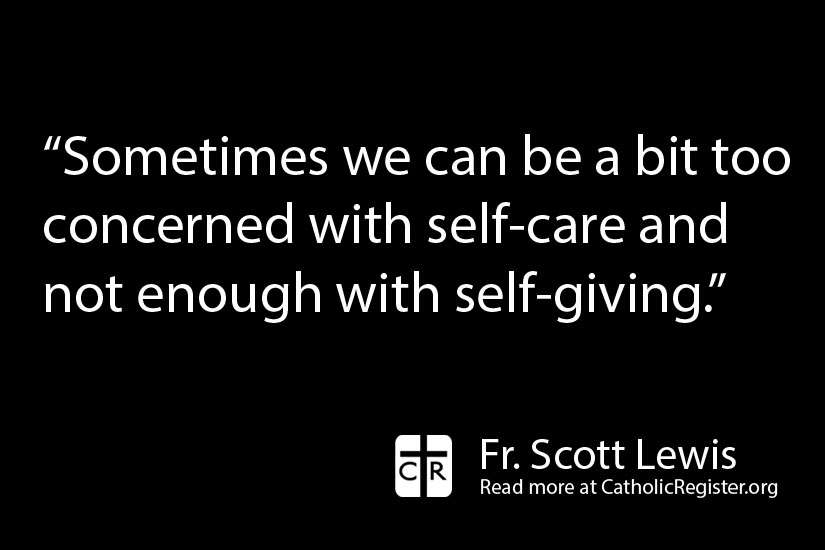Sirach celebrated God as the just and incorruptible judge. God always renders a fair judgment, unmoved by flattery, lies, human manipulation or appeals to status. God’s ears are fine tuned to prayers that are honest and humble, especially when they are voiced by the weak and vulnerable. Sirach insisted that God will render justice swiftly and efficiently. This is a sobering thought, and applies not only apply to individuals, but to institutions, societies and nations. God does not tolerate cruelty, callousness and injustice, regardless of who the perpetrators may be. We will all stand before God someday — perhaps we can keep this always in the back of our minds in our personal dealings with others and the decisions that we make that affect others.
Paul or one writing in his name realized that winning the race is not as important as finishing it. He recognized that he was not called to be perfect or successful, but faithful. He kept the faith, despite facing many troubles and struggles, among them the faithlessness or unreliability of others. The Lord was his strength and protection, and the Lord never let him down. Our own time and culture lacks staying power, so we could do far worse than follow Paul’s admirable virtue of perseverance. Paul did not hold back, but poured himself out as a libation to God for the sake of others and the Gospel. Sometimes we can be a bit too concerned with self-care and not enough with self-giving.
Pope Francis’ famous comment, “Who am I to judge?” upset many people. In saying this, he was attuned to the message of the Gospels and the heart of Jesus. One of the reasons Jesus forbade us to judge others is that we do such a poor job — we are almost always mistaken in one way or another. We do not know the mind, heart and history of another person, so we have no right to judge them. When we do so, we are playing God, for God is the only one with both the right and the capacity to judge correctly.
In the story, a Pharisee and a tax collector were praying in the temple. One was from the top of the social and religious heap, the other at the very bottom. The Pharisee was quite pleased with himself as he prayed in gratitude for the blessings that God had given him and reviewed his own religious achievements. He was particularly grateful that God had not made him like other people — he was someone quite special — and especially not like that awful tax collector next to him. The tax collector, on the other hand, was a broken man. He was painfully and acutely aware of his need for forgiveness and grace. His simple prayer was “‘God, be merciful to me, a sinner!”
Jesus assured His audience that it was the tax collector that went home right in God’s eyes. His humility, honesty and lack of self-justification opened him to receive God’s mercy. Jesus ended by declaring that anyone who forgot this and tried to exalt themselves would be brought low, while the truly humble would be exalted. The Pharisees were no worse than others, and we can find the type of attitude that this fellow displayed in every religion, time and place. This is what happens when we lie to ourselves, run from the truth and hide behind a false persona. Thanking God that we are not like the others is something that Christians have done for centuries. But we are like the others! Both history and the scandals of our time should enlighten us.
That is the point — we follow Jesus not because we are particularly holy and good but because we are not and desperately need His grace to be better people. Letting go of the mask that we wear can be liberating and healing. May we humbly and honestly extend the mercy to others that we hope to receive from God.


